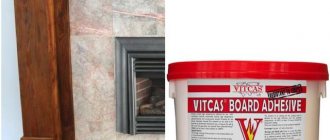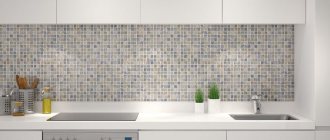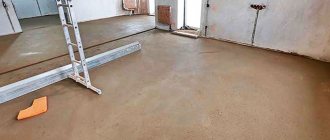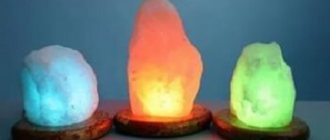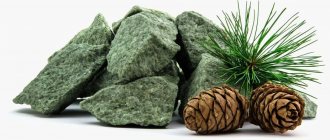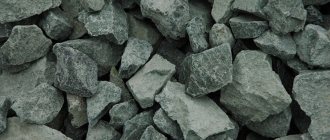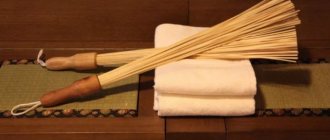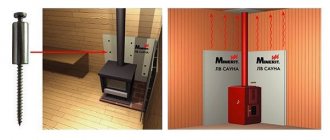What are the rules for choosing tile adhesive?
When selecting adhesive for ceramic tiles or tiles in the bathroom or kitchen, you need to take into account some criteria that will help you choose a good suitable adhesive composition. It is worth highlighting the following most important criteria:
- Type of rough surface. Laying tiles can be done on different surfaces: tiles, plasterboard, concrete, plastered, etc.
- Dimensions of one tile, general dimensions of the surface being treated. If the tile products are large, then the adhesive should be chosen with high adhesion, because The finishing material weighs a lot and will create a strong load.
- Place of work. For bathrooms and bathrooms, it is necessary to choose a waterproof adhesive that can withstand the constant influence of high levels of humidity. If the tiling is done in the hallway, corridor, or kitchen, then you can simply choose a good adhesive for installing tiles that does not have high moisture-resistant properties.
- Installation method. If you will be laying the tiles yourself, then it is recommended to buy adhesive mixtures that will not dry quickly, giving the installer the opportunity to correct any imperfections in the finish. When carrying out work by professionals, you can choose high-quality quick-drying mixtures.
Important! It is not recommended to use universal glue and mixtures designed to work with different materials. It is recommended to select a specialized waterproof adhesive for floor tiles. These types of adhesives for floor tiles will last much longer than their universal counterparts, and will also be able to provide better fastening of products to the floor and wall surfaces.
How to choose tile adhesive?
What do we pay attention to when choosing glue?
Most often, these are just two parameters - the price and the inscription on the packaging, for example, “for heated floors,” “for porcelain tiles,” “for any tile format,” etc.
This is why there is a complete misunderstanding of why one glue costs 400 rubles, and another (with the same inscriptions on the bag), for example, 1000 rubles or more.
The fact is that you can’t always trust . Most often, the information provided there is too general and a lot is left out. In addition, in Russia there is no document clearly regulating the conditions for using this or that glue, and manufacturers often use this.
Video on the topic
Types of tile adhesive
If we talk about what kind of adhesive you can choose for tiles, ceramic products, tiles, it is worth highlighting several types of mixtures. To carry out these works, cement, dispersion, elastic, epoxy mortars are usually used.
Cement
The basis of such adhesives for floors or walls in the kitchen, bathroom, and hallway is ordinary cement. Such products are inexpensive and sold in powder form. Therefore, the dry mixture must be mixed with water before use.
When choosing a cement composition, you need to look at the packaging, which should be marked: “tile adhesive.” The mixture can be thin-layer (for perfectly level surfaces) or thick-layer (for uneven surfaces).
Dispersive
When choosing a dispersion adhesive for floor tiles, you can count on a high level of adhesion of finishing materials. The composition is represented by a mixture of acrylic materials with binders and synthetic resin substances.
Therefore, it is best to choose it for plasterboard, varnished, painted surfaces, for walls and floors with old finishes that cannot be removed. The dispersion type of adhesive is not suitable for concrete coatings.
Important advantages of dispersion mixtures include:
- Cleanliness and order when carrying out finishing work (when compared with cement analogues).
- There is no need to prepare ready-made moisture-resistant adhesive for tiles in the kitchen or on the bathroom floor with your own hands.
- Hardening takes quite a long time, so it is possible to adjust the location of the tiles after applying the adhesive.
Elastic
Elastic types of adhesives for laying tiles and ceramics are suitable for interior work and for surfaces that lack moisture absorption characteristics, for moving structures. Elastic compounds are an excellent solution for covering floor coverings with “warm floors”, because the applied adhesive solution will be resistant to thermal expansion and contraction.
Epoxy
You should not give preference to epoxy adhesive for tiles in the bathroom or kitchen, because... Such compositions are not chosen for residential premises. Epoxy mixtures are much more expensive than previous analogues. It is also difficult to work with them without the proper skills and experience. For example, during the process of laying epoxy tile adhesive, it is necessary to observe strict temperature conditions, and when mixing the mixture, strictly monitor the proportions.
Epoxy compounds are used to carry out work in:
- Saunas.
- Swimming pools.
- Baths.
- Utility premises.
When using epoxy glue, dampness in wet areas is not important because it is 100% waterproof. Using it, it is possible to lay tile materials on different types of surfaces.
Consistency
It is difficult to say which adhesive for bathroom tiles will be better, because in some cases the adhesive composition must be selected individually, taking into account the conditions of work and operation of the material. Compositions sold in stores may have different consistencies:
- Liquid. Mixtures in the form of a paste that are ready for use immediately after opening the package - the consumer does not need to knead or mix anything. Convenient for all those who want ready-made adhesive for bathroom tiles. The main disadvantage of such products is the high price (when compared with dry formulations). Separately, Fr. These types of glue cannot be used for laying ceramic tiles in the bathroom - only for repairing and restoring individual finishing elements.
- Dry. Traditional dry mixes must be mixed before use in accordance with the instructions on the package. Such products are inexpensive and suitable for laying tiles on uneven and poorly leveled surfaces.
Special properties
Tile types of adhesives for bathrooms have different characteristics; they glue tiles in different ways, so when choosing them, it is necessary to take into account the presence of special properties. Most often you can see the following characteristics of adhesive mixtures:
- Quick drying. Such compositions, as the name implies, dry fairly quickly - the laid material can be used within 2-3 hours after completion of the work. This tile adhesive is waterproof and frost-resistant, but can only be used for finishing work on simple, flat, stationary surfaces. Quick-drying compositions are presented in the form of dry mixtures. You should pay attention to the following brands: Ivsil Express, Knauf Schnell Kleber.
- Frost-resistant. This type of tile adhesive for bathrooms and kitchens is sold in the form of a dry composition, so it is easy to store and transport. 100% retains its working properties at low positive and negative temperatures. Suitable for use in country houses and summer cottages. The most popular brands include: Ceresit Bautechnik, Kreisel MULTI 102, Knauf HP Start.
- Heat resistant. An excellent adhesive option for bathroom tiles, as well as for finishing surfaces that will heat up during operation (warm floors, fireplaces, stoves, etc.). The applied composition is able to withstand high operating temperatures - up to 110-120o C. At the top of the rating of heat-resistant tile adhesive are the following brands: Webervetonit RF, Ceresit CM 17, IVSIL EXPRESS, FEROZIT-108.
- Acid resistant. Not everyone knows how to choose an adhesive for laying tiles that will be used in an aggressive environment. In this case, preference should be given to acid-resistant adhesive compositions, which are used if the material will be exposed to various chemicals.
- Water resistant. A tile adhesive is called waterproof if it is waterproof and inert to liquids. Such adhesive compositions are the best option for finishing work in bathrooms, toilets, kitchens, hallways, as well as in any other rooms and places where tile products are exposed to high humidity and liquid. Trademarks that deserve special attention are: Ceresit CM 17, Pobedit Pool TM-16. If we talk about which tile adhesive will be better for the bathroom, then it is worth highlighting waterproof compounds. Their only drawback is their high price (when compared with conventional liquid and dry mixtures for laying tiles and ceramics).
- Universal. Choosing a universal adhesive for bathroom tiles is a rather controversial decision. This is a ready-made adhesive for bathroom tiles, which has very limited characteristics. For example, it cannot be used in rooms with high humidity, porcelain stoneware products cannot be laid on it, and it cannot be used if the room has heated floors. Universal glue is selected if it is intended to be used under average operating conditions.
Properties of high-quality glue
Bathroom tile adhesive is used to fix tiles to the surface of walls and floors. Sanitary visits have an aggressive microclimate, which leads to rapid wear of building materials. In this process, high humidity, temperature changes, and the risk of fungal spread play a role. Therefore, ceramic tiles are used to decorate the bathroom, which can be used for decades. In order for the glue to hold the tile on the surface, it must have the following qualities :
- High degree of adhesion. The weight of each tile, especially if it is made of porcelain stoneware or large in size, is quite large. Glue for bathroom tiles can instantly bond them to the surface being finished;
- Plastic. Regardless of the thickness when diluted, a good adhesive should apply well to the tile, wall or floor. High-quality adhesives do not flow during processing, even if the layer is thick;
- Spreadability. This quality is most relevant for finishing floor tiles, since the best adhesive for ceramic tiles, spreading, fills all small cracks, irregularities, and chips in the concrete base;
- Slow drying speed. If during the drying process the adhesive does not immediately release water, then during installation the tile can be corrected by correcting minor flaws. Quick-drying glue is not convenient to use, since it must be diluted in small portions and worked quickly, paying less attention to the quality of installation. The lower the drying speed, the stronger the tile is attached.
When deciding which adhesive to choose, remember that not only the strength of the fastening depends on it; low-quality adhesive leads to the fact that the tile can crack if any object falls or is accidentally hit.
Applying tile adhesive
How to calculate glue consumption?
In the store you can find different shades of tile adhesive: white, gray, transparent, dark, etc. Color does not affect the consumption of the adhesive composition in any way. To find out the approximate consumption of the mixture, you need to inspect the packaging, although the manufacturer’s instructions give very average figures.
The total consumption of finished adhesive for bathroom tiles is influenced by the following factors:
- A type of adhesive composition. Different types of glue have different consumption. For example, cement compositions that must be diluted with water are consumed in quantities of 1.4 to 2 kg per m2. For epoxy mixtures, the consumption is much lower, while for dispersion mixtures it is usually higher.
- Features of laid tiles. If you glue porcelain tiles, the glue consumption will be minimal. When working with glazed products, it will increase, and when using handmade tiles it will be maximum. Therefore, packs and packages with glue for porcelain tiles are usually smaller in size and volume.
- Type of surface to be finished. If the surface is perfectly flat, then the glued tile will be held in place with a minimum amount of glue. If there are defects and irregularities on the surface that need to be hidden, then the consumption of the adhesive composition can increase 2-3 times.
- Temperature conditions. When finishing work is carried out in optimal temperature conditions (from +15 to +23 degrees), the consumption of tile adhesive composition will be minimal. At high temperatures, moisture will rapidly evaporate from the prepared solution, so the consumption will increase proportionally.
- Work technology and layer skills. If finishing work is carried out by professionals, then the consumption will be insignificant - within normal limits. If you do the work yourself, the cost will increase.
Popular manufacturers
There are different tile adhesive manufacturers on the market. In this case, we can highlight several of the most popular brands.
"Eunice"
One of Knauf's main competitors. “Yunis” adhesive mixtures have high adhesive parameters, quick drying after application, frost resistance, and resistance to 100% indoor humidity. They can be used to finish heated and cooled surfaces. Approximate consumption is from 3 to 4.5 kg/m2. Cost – up to 300 rubles per package.
"Mastplix"
An ideal option for a tile adhesive composition if the surface to be finished is not even. Mastiplax adhesive is recommended to be used if there are uneven surfaces that need to be eliminated and the tiles can be laid successfully. Mastiplax mixtures are suitable for laying ceramics, porcelain stoneware, artificial and natural stone. Cost - about 280-290 rubles per package.
Ceresit
One of the most famous manufacturers of various adhesive compositions in the CIS. The company sells the mixture for laying tiles at a price of no more than 250 rubles per package, so it can be considered inexpensive. Ceresi is suitable for working with uneven surfaces. After application, the compositions will quickly set, preventing the tile products from slipping. Can be used without restrictions in domestic and residential premises.
Knauf
Adhesive compositions for tile materials from the Knauf company are considered one of the best on the market. One package of such a product will cost 250-270 rubles. These are German quality products, which are used for installing tiles on walls and floors (regardless of the structure and type of surface). The mixture dries slowly, so work can be done slowly. Knauf compositions are characterized by increased strength, water resistance, and elasticity.
Ivsil Mosaik
Quite an expensive adhesive for tiles. This is a tile adhesive with a pronounced white color, which has high adhesion strength to the surface. It can be used indoors and outdoors. Suitable for fastening tile materials and natural stone. Can be used for finishing work in any wet areas (swimming pools, baths, saunas, bathrooms, etc.). Cost - about 400-500 rubles per package.
It is also worth paying attention to the brands Litoflex, Bergauf Mosaik, Mira Super Fix, Sopro, Keraflex Maxi. Considering the variety of products, it is difficult to say which tile adhesive is better. But experts note the brands Knauf, Ceresit and Unis.
Tile adhesive (2 videos)
Types of tile adhesive (17 photos)
Summarizing
Considering the above, it becomes clear that it is impossible to make an unambiguous rating of the best mixtures for laying tiles. In this case, everything will depend on many factors that determine the choice.
If you plan to lay the tiles yourself, then before purchasing glue you need to study existing offers, decide on the purpose of the room and the conditions under which the tiles will be used. Only after this you need to go to the store and choose the mixture that is suitable in each specific case.
It should also be noted that high cost does not always indicate the appropriate quality of the product. But you need to remember that among the cheap mixtures there are unlikely to be high-quality ones, so it is better to choose among mid-priced products.
